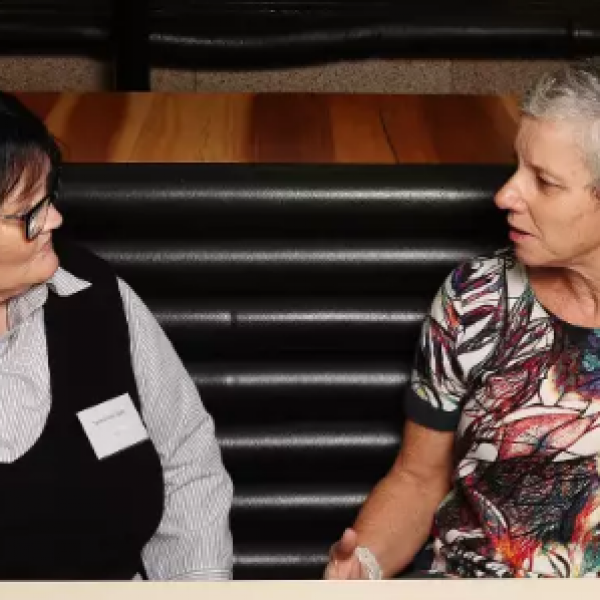Families need more support to pay a bigger part in child protection system
NEWCASTLE-based researchers, parents, government, and child protection workers have come together in what's believed to be a national first to find solutions to a broken system.

In a personal message to the Family Inclusion Roundtable, NSW Minister for Family and Communities Kate Washington said that, as the state government embarked on significant structural reform, it was clear the status quo was not an option.
In a personal message to the Family Inclusion Roundtable, NSW Minister for Family and Communities Kate Washington said that, as the state government embarked on significant structural reform, it was clear the status quo was not an option. "We are keen to consider innovative approaches," Ms Washington said. "We know that collaborating with parents and family helps keep children safe and improves their long-term outcomes. Their voices and experiences are critical to building a better child protection system." The family inclusion forum, held at the University of Newcastle's NUspace, aims to change practises related to child protection and family inclusion across Australia.
The system
Dr Nicola Ross from the School of Law and Justice presented research covering the challenges experienced by children, parents, kin, and other stakeholders, starting with adversarial approaches to investigations. For far too long parents have been left out of the teams, systems, and policies developed to keep children safe and there is a long way to go to reform child protection to align with family inclusion, Dr Nicola Ross said. A key issue was the need to focus on families before they have contact with child protection, and once they are in contact with child protection, before there is a need for any legal proceedings Dr Ross said.
Currently, about 17 per cent of the spend on child protection services went into family support, early intervention and family preservation programs and that was not the right balance. The bulk of spending is on investigating families and providing out of home care. Children are removed based on predicting the future risk of maltreatment, rather than assessing what support the family needs to keep them safe, she said.
Groundbreaking research
The research showed that parents find the system punitive, blaming and stigmatising; kinship and foster carers are not heard and are excluded from the decision making process, and workers on the frontline are silenced, Dr Ross said. Children and young people themselves also felt unheard about wanting to live with and retain connections with their siblings, and more time with family, many of them leaving care to return to their parents or other family. "What we are doing is evidence-based, based on research with people who are usually not heard or listened to, but who are a key part of the group that is needed to make things change," Dr Ross said. "I hope we can find some solutions to the how of involving parents and families so that there's less dramatic calls on, for instance, emergency accommodation for children, which is so expensive and so traumatising for everybody involved, particularly the children but also their families."
Pilot projects
Two new projects being piloted in the Hunter which may become part of the solution are being led by Family Inclusion Strategies Hunter (FISH) which is run by parents with lived experience. The first is a supported family time program, where families will be supported to engage with their children during supervised visits once they've been removed, to help them maintain their connection and relationships. The second is an orientation workshop for parents entering the system for parents.
That program has been developed by a team of experts including workers from the Department of Communities and Justice, non-government organisations, and parents with lived experience. Rachel Evans, Service Manager for the FISH peer support and advocacy service, said it offered information and support in relation to grief and loss, navigating the court process, working with caseworkers, and how to ask for more time with your kids. At the forum held on Wednesday, April 24, organisers will "test the waters" to see if there was interest in beginning a family inclusion alliance, Dr Ross said. The outcomes will be presented to Ms Washington at a later meeting.
This article was written by Gabriel Fowler and was originally published in the Newcastle Herald. Access the article here.
Contact
- Nicola Ross
- Email: nicola.ross@newcastle.edu.au
Related news
- Professor Dun recognised with Australian Society for Medical Research award
- Scientists unlock key to breeding ‘carbon gobbling’ plants with a major appetite
- Briefing with Senator Penny Allman-Payne
- Scientists uncover the climate of a planet 280 light-years away
- Sector-first approach to Indigenous health research
The University of Newcastle acknowledges the traditional custodians of the lands within our footprint areas: Awabakal, Darkinjung, Biripai, Worimi, Wonnarua, and Eora Nations. We also pay respect to the wisdom of our Elders past and present.

